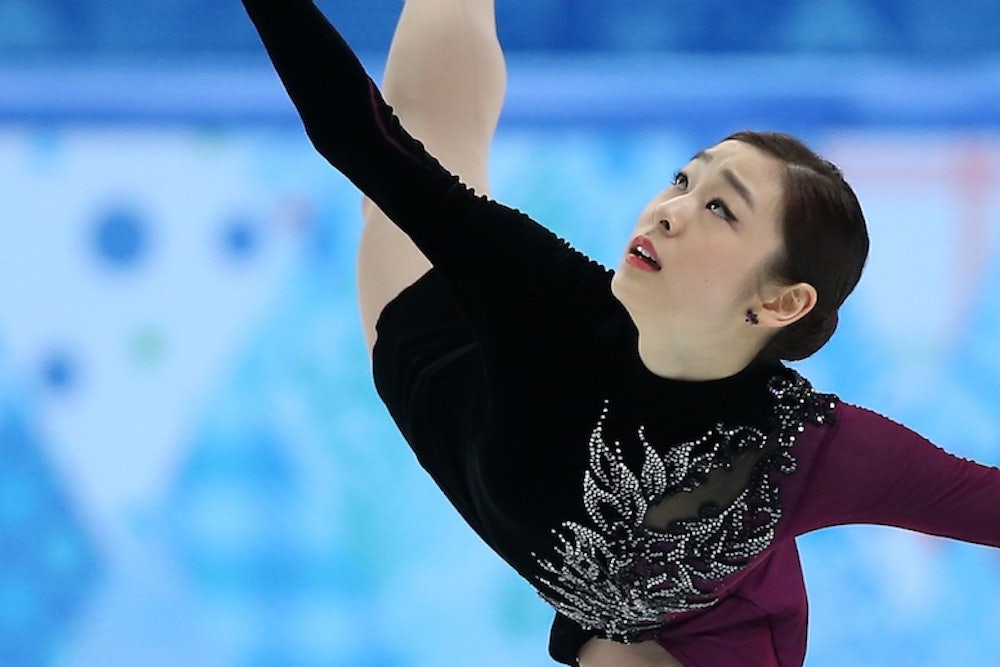When the Olympic judges placed South Korean figure skater Yuna Kim second to Russian Adelina Sotnikova yesterday, her fans wouldn’t have it: Nearly two million have already signed a petition to have the judging re-opened. American skating enthusiasts might know Kim for her artistic style or her signature “camel spin”, but in South Korea—where she’s known as “Queen Yuna”—there’s another reason women love her: Unlike most Korean celebrities and “pop stars”, she appears not to have had plastic surgery—even though she has the kind of eyelids that would send many Korean girls running to the doctor.
“Most Korean girls want plastic surgery,” said Lee Tea Yang, a trader in Seoul. “Yuna Kim made a new era. There has never been a star like her.”
Though statistics are hard to verify, South Korea consistently ranks in the top few countries worldwide for per capita plastic surgery. One of the most popular procedures is “double eyelid surgery”, in which doctors use a combination of cutting and stitching to create a crease in Asians’ typically flat upper eyelids, giving the eyes a larger, rounder, arguably Westernized appearance.
Doctors can tailor the procedure to suit their clients’ budget and preferences. The “full incision” method—the most painful and permanent—can mean two hours on the operating table and a month in recovery, while the temporary “suture” method is less invasive, substituting surgical stitches for incisions. Girls who can’t afford surgery can buy tape or glue kits from most drugstores for a few dollars: When they glue their eyelids into a crease before bed, they wake up with a fold that, with some luck, will persist throughout the following day.
“Eyelid surgery isn’t a big deal,” said Tae Kim, who grew up in Seoul. In Seoul taxis, a QR code allows passengers with iPhones to find an interpreter, locate a shopping center or arrange a plastic surgery consultation.
A popular 2006 South Korean film, 200 Pounds Beauty, tells the story of Han-na, an unattractive phone sex worker who, after undergoing such extreme plastic surgery that her best friend can’t recognize her, becomes a successful pop star and seduces the man of her dreams. At the end of the film, Han-na’s best friend asks a surgeon for full-body plastic surgery.
Could the prevalence of plastic surgery in Korea have to do with an effort to conform to a Western standard of beauty? In one of the only academic studies of Asian plastic surgery, Eugenia Kaw, an anthropologist at the University of California, Berkeley, interviewed plastic surgeons and Asian-American women in California who had undergone eyelid surgery or gotten nose jobs (to make their noses bigger). She concluded:
Asian American women’s decision to undergo cosmetic surgery is an attempt to escape persisting racial prejudice that correlates their stereotyped genetic features (‘small, slanty’ eyes and a ‘flat’ nose) with negative behavioral characteristics, such as passivity, dullness, and a lack of sociability. This research suggests that Asian-American women who undergo these types of surgery have internalized… a racial ideology that associates their natural features with dullness, passivity and lack of emotion.
“Yuna being an icon definitely has a positive influence on women,” said Sylvia Kang, a Korean-American college student. “Her presence definitely made people think that there are different types of beauty apart from typical Western models.”
